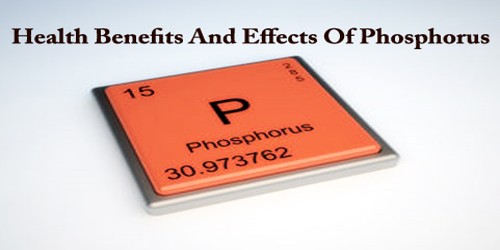Phosphorus is an important constituent of human bones, meaning that it would be impossible for the body to function normally without an adequate amount of this mineral. It is the second most abundant mineral next to calcium, accounting for roughly 1 percent of our total body weight. Phosphorus is one of 16 essential minerals. These are minerals that the body needs to function normally.
Although the main function of phosphorus is to build and maintain bones and teeth, it also plays a major role in the formation of DNA and RNA (the genetic building blocks of the body). Doing so helps ensure that cells and tissues are properly maintained, repaired, and replaced as they age. It is an essential part of our diet, particularly as children, when the most growth and development occurs.
Sometimes phosphorus is confused with phosphate. In reality, they are two different things. Phosphorus is an element. Phosphate is a salt-containing phosphorus. Phosphorus also plays a key role in metabolism (the conversion of calories and oxygen to energy), muscle contraction, heart rhythm, and the transmission of nerve signals. Phosphorus is also considered a macromineral (alongside calcium, sodium, magnesium, potassium, chloride, and sulfur) in that we need more of it than trace minerals like iron and zinc.
The amount of phosphorous that is naturally present in food varies considerably but can be as high as 370 mg/100 g in the liver, or can be-low, as in vegetable oils. Foods rich in phosphorous include tuna, salmon, sardines, liver, turkey, chicken, eggs, and cheese (200 g/100 g). Adults need 550mg of phosphorus a day.
Good sources include:
- red meat
- dairy foods
- fish
- poultry
- bread
- brown rice
- oats
Health Benefits –
Phosphorus is regularly noted as the second-most profuse mineral in the human body and is the second-most important element when it comes to maintaining bone health and integrity, behind calcium. Other health benefits of phosphorus are vital for performing essential activities for different body parts like the brain, kidney, heart, and blood.
In addition, phosphorus helps to:
- build strong teeth
- manage how our body stores and uses energy
- reduce muscle pain after exercise
- filter out waste in our kidneys
- grow, maintain, and repair tissue and cells
- produce DNA and RNA the body’s genetic building blocks
- balance and use vitamins such as vitamins B and D, as well as other minerals like iodine, magnesium, and zinc
- maintain a regular heartbeat
- facilitate nerve conduction
Adults need less phosphorus than children between the ages of 9 and 18, but more than children under age 8. The recommended dietary allowance (RDA) for phosphorus is the following:
- adults (ages 19 years and older): 700 mg
- children (ages 9 to 18 years): 1,250 mg
- children (ages 4 to 8 years): 500 mg
- children (ages 1 to 3 years): 460 mg
- infants (ages 7 to 12 months): 275 mg
- infants (ages 0 to 6 months): 100 mg
Few people need to take phosphorus supplements. Most people can get the necessary amount of phosphorus through the foods they eat.
Health Effects –
Phosphorus can be found in the environment most commonly as phosphates. Phosphates are important substances in the human body, because they are a part of DNA materials and they take part in energy distribution. Phosphates can also be found commonly in plants.
Phosphate is a dietary requirement, the recommended intake is 800 mg/day, a normal diet provides between 1000 and 2000 mg/day, depending on the extent to which phosphate rich foods are consumed.
Humans have changed the natural phosphate supply radically by addition of phosphate-rich manures to the soil and by the use of phosphate-containing detergents. Phosphates were also added to a number of foodstuffs, such as cheese, sausages, and hams.
Too much phosphate can cause health problems, such as kidney damage and osteoporosis. Phosphate shortages can also occur. These are caused by extensive use of medicine. Too little phosphate can cause health problems.
Phosphorus in its pure form has a white color. White phosphorus is the most dangerous form of phosphorus that is known to us. When white phosphorus occurs in nature this can be a serious danger to our health. White phosphorus is extremely poisonous and in many cases exposure to it will be fatal.
In most cases people that died of white phosphorus exposure had been accidentally swallowing rat poison. Before people die from white phosphorus exposure they often experience nausea, stomach cramps, and drowsiness.
White phosphorus can cause skin burns. While burning, white phosphorus may cause damage to the liver, the heart or the kidneys.
Taking high doses of phosphorus supplements for a short time can cause diarrhoea or stomach pain. Taking high doses for a long time can reduce the amount of calcium in the body, which means bones are more likely to fracture.
Information Sources:
















